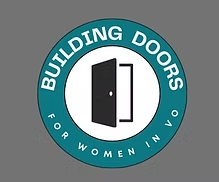I consider myself among the fortunate few who make their living as a voice-over actor. Each day I awake with the potential to be greeted by the next great audition or booking. A normal person’s smartphone-phantom-limb-syndrome doesn’t hold a candle to mine, when every beep, blink or buzz could bring with it an amazing new opportunity. So what to do when a string of days pass with nary a good audition to bolster me? Well, for starters, write a blog post about it!
The ebbs and flows of this business can be exciting and enervating. Some days and weeks I’m so busy I can barely grab a bite; running to and fro – from this audition to that gig, back to my home studio to record on other projects – throughout the day. While other days…[crickets]. The normal week generally falls somewhere in between, but when it’s very slow and quiet, rather than stew over and lament the lack of opportunities, I try to make the best of it by taking care of business and personal things.
I figured out many years ago, when I started trying to work as an actor/freelancer, that this roller coaster would be the norm. It’s definitely not for everyone. But I figured if I started booking work and built a satisfied pipeline of production contacts there would hopefully be storms to replenish from the droughts. And as the years have gone on this philosophy has held me in pretty good stead. So when it gets quiet, rather than freak out for fear of my next booking taking too long, I try to take the Zen approach.
I start by taking care of any backlogged admin stuff that’s gone unattended. Generally that means I’ll go through and make sure invoices are up to date, all sent out and – for those that have late payments – followed up on. There is no time like a slow time to get your ire up at producers who are way overdue in paying you. I try to budget for payments within 30 days – 45 tops – and am always amazed, and annoyed, how often basic payment timelines, that companies large and small also rely on to manage their finances, are flouted. And most of the time it’s not as if these places are waiting on their client to pay them before they can pay me (though sometimes it is, and that’s ok); it’s just that to navigate their accounting bureaucracy is too much hassle. Which brings it back on me. And that’s what I will deal with first when things are slow. That’s why it’s nice to book work through my talent agents, who handle all the payment details and deadlines. But for these smaller jobs that keep me busy, I have to be my own everything – agent, accountant and lawyer. But that’s for another blog…
Next, I will catch up on something a little less annoying to deal with, and absolutely essential: marketing. When gigs are good it’s very easy to get lazy about beating the bushes for new clients and touching base with old ones. But it’s not a great idea. A good pipeline is ever important to be successful, and I like to keep that rolling whenever there is a slowdown. The most recent time I had some downtime I started working methodically through documentary production companies. Since I have a lot of experience narrating all kinds of docs for TV and film, but haven’t booked one in a few years, I am focused hard on trying to break back into that fun genre. Plus, I am trying to help my agents be my best advocate by making inroads for them on my behalf. So, I work diligently when I have the time to create those new contacts. Even though the chances of landing in someone’s in-box precisely when they are casting for a new project are slim, with my experience and pedigree I have elicited some nice responses from producers, and am ever optimistic that they will translate into cool new bookings down the road.
Another thing I like to attend to – and the most fun – when I have the time is compiling recent work and updating my demos with them. In the old days you’d have to bring a CD-R into the studio with a self-addressed and stamped mailer to give to the producer or engineer, and hope they’d remember to send you a copy of your work. But now most productions can be found online. So I’ll take a spin through the world wide web to see where I can find spots, industrials, etc. which I’ve worked on, then record them to my computer, pull out the parts I want to use, then excerpt them on to my demos. And, voila! A new reel to market myself.
Then I’ll take some personal time – try to bang out a tune on my keyboard; go for a run through Prospect Park; and hope that upon my return fun new projects are beckoning. Did I mention that I love the thrill off the unknown gig that’s just around the corner?
Alan Schwartz is an accomplished voice-over artist and contributing producer/coach at Such A Voice. Check out his work at www.ajsvoiceover.com.






